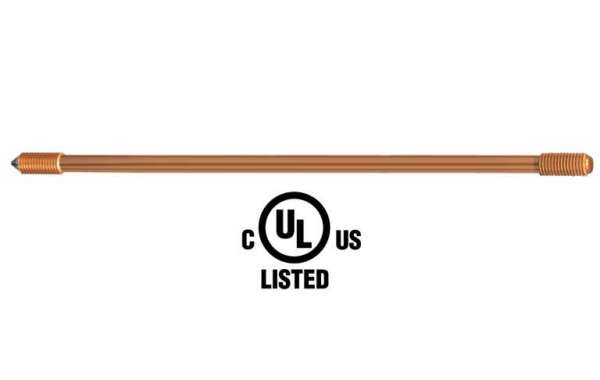Ground rods are an essential component of electrical grounding systems, used to provide a safe and effective path for electrical current to flow into the earth. When choosing the best type of ground rod, there are two main options: copper ground rod and galvanized ground rod.
This blog will compare the two and determine the better option.
Copper Ground Rods
Copper ground rods are made of high-quality copper, an excellent conductor of electricity. Copper ground rods are highly effective at dissipating electrical energy into the earth, making them a reliable choice for electrical grounding systems. They are corrosion-resistant and can last decades, even in harsh outdoor environments.
Advantages:
- Copper is a highly conductive material that offers excellent electrical conductivity.
- Copper ground rods are highly resistant to corrosion and can last for a long time.
- Copper is easy to install and can be easily driven into the ground.
- Copper ground rods are a good choice for highly conductive soils.
Galvanized Ground Rods
Galvanized ground rods are made of steel coated with a layer of zinc to prevent rust and corrosion. Galvanized ground rods are a popular choice for electrical grounding systems due to their low cost and wide availability.
Advantages
- Galvanized ground rods are less expensive than copper ground rods.
- They are highly durable and can last for decades in most environments.
- They are effective in most soil types.
Which is Better?
In most cases, copper ground rods are the better option for electrical grounding systems. Copper offers superior electrical conductivity and is highly corrosion-resistant, making it more reliable and long-lasting than galvanized ground rods.
However, galvanized ground rods may be a suitable alternative in specific applications where cost is a significant factor or soil conditions are less conductive. In summary, while copper ground rods may be more expensive than other grounding electrodes, they offer superior electrical conductivity and corrosion resistance, making them a better long-term investment for electrical grounding systems.
The Verdict
In conclusion, when choosing between copper ground rods and galvanized ground rods, it is essential to consider the specific requirements of your electrical grounding system. Consider factors such as soil conductivity, cost, and durability to determine the best option for your application.










